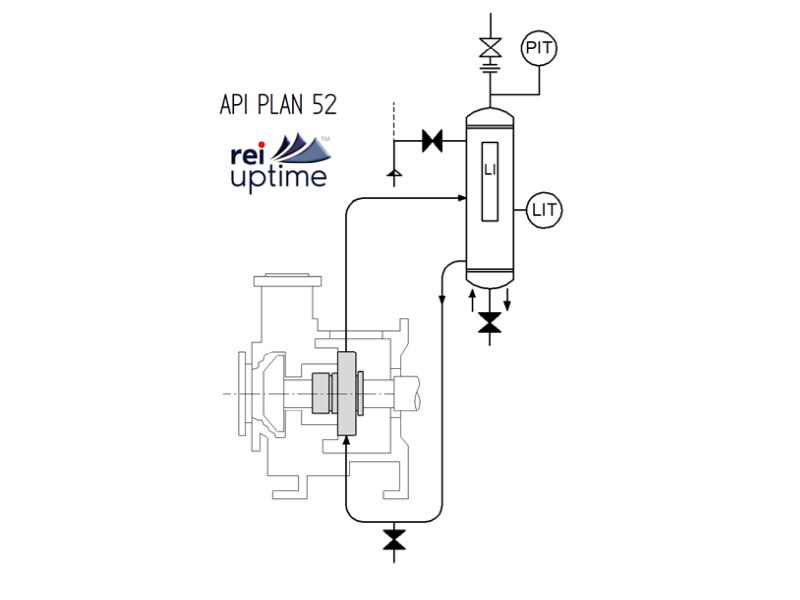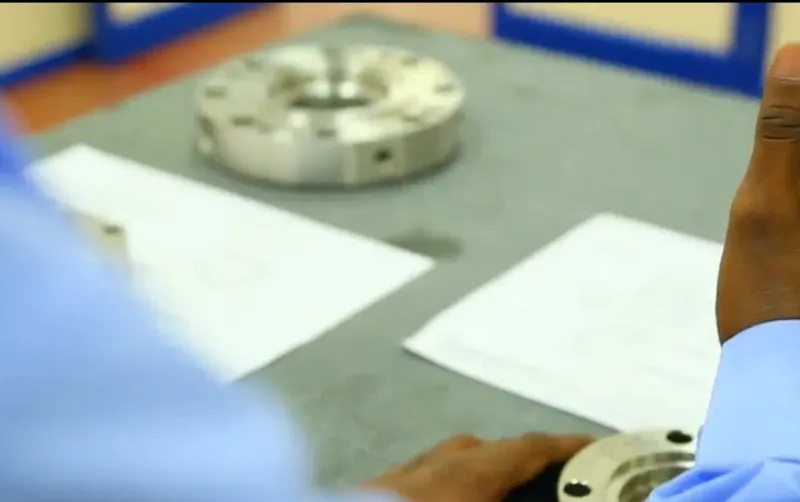

November 20, 2024
The Importance of Material Traceability in Mechanical Seal Components
In industries like chemical processing, pharmaceuticals, and oil & gas, mechanical seals play a critical role in ensuring the safe and efficient operation of pumps and rotating equipment. One key factor that determines the performance and reliability of mechanical seals is the material integrity of their components. This is where material traceability becomes indispensable.
At Reliability Engineering Industries, we understand that high-quality materials are the backbone of durable and efficient mechanical seals. This blog explores why material traceability is essential and how our team ensures the authenticity and accuracy of material grades for mechanical seal components.
What Is Material Traceability?
Material traceability refers to the ability to track and verify the history, location, and usage of materials throughout the manufacturing process. It ensures that the material used in a product meets specified standards and can withstand the operational stresses it will face.
Why Is Material Traceability Important?
Ensures Compliance
Industries such as pharmaceuticals and petrochemicals have stringent safety and regulatory requirements. Ensuring that materials meet prescribed grades and standards is essential for compliance.
Prevents Failures
Substandard or incorrect materials can lead to mechanical seal failures, resulting in equipment downtime, environmental hazards, and costly repairs.
Enhances Reliability
High-performing seals rely on the use of precise material grades that can withstand the operating environment’s specific chemical, pressure, and temperature conditions.
Builds Trust
For customers, knowing that every seal component is traceable builds confidence in the product and the manufacturer’s commitment to quality.
How Reliability Engineering Industries Ensures Material Traceability
At Reliability Engineering Industries, we follow rigorous protocols to ensure that the materials used in our mechanical seal components meet the highest quality standards. Here’s how:
1. Material Certification
Every batch of raw materials we procure comes with a Material Test Certificate (MTC), ensuring that the material complies with international standards such as ASTM, DIN, or ASME.
2. Positive Material Identification (PMI)
We employ Positive Material Identification (PMI) techniques to verify the material grade and composition. Using advanced tools such as X-ray fluorescence (XRF) analyzers, our team confirms the elemental composition of materials to ensure they match the required specifications.
3. Batch Numbering and Documentation
Each material batch is assigned a unique identifier, allowing us to trace it back to its source. This batch numbering system is maintained throughout the manufacturing process, ensuring complete traceability from raw material to finished product.
4. Visual and Dimensional Inspections
Before the machining process begins, raw materials are subjected to visual and dimensional inspections to ensure they meet required specifications and are free from defects such as cracks, surface irregularities, or inclusions.
5. Compliance Testing for Specific Applications
For applications requiring specific resistance properties—such as corrosion resistance in chemical environments or high-temperature endurance in thermal processes—our materials are tested under simulated operating conditions.
Examples of Material Grades We Test
Metals: Stainless steel (SS 316, SS 304), Inconel, and Hastelloy are common materials for seal components. We check the chemical properties of the material and cross reference the scanned results against ISO material standards.
Elastomers: O-rings and secondary seals made of Viton, EPDM, or PTFE are also checked using a range of instruments, including hardness.
Ceramics and Carbides: Silicon carbide and tungsten carbide are essential for wear-resistant seal faces. We verify their hardness.
Building Reliability with Traceability
At Reliability Engineering Industries, material traceability isn’t just a process; it’s a commitment to delivering products that meet or exceed our customers’ expectations. By ensuring the authenticity of every material grade we use, we provide mechanical seals that are not only reliable but also tailored to the specific needs of demanding industries.
In a world where operational safety and efficiency are paramount, material traceability is not optional—it’s essential. Trust us to deliver seals built on a foundation of material excellence.
Need assistance with mechanical seals? Contact our experts today to learn more about our quality assurance practices. Contact us here.
Suggested posts
No items found.




